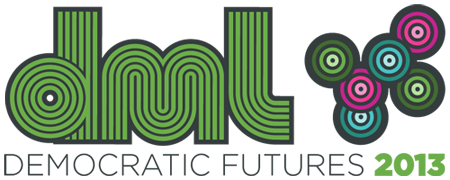TG: Civic Technology: Combining Mediums and Methods for Community-Driven Governance, Engagement, and Research
As innovations in Open Government change the relationships between publics and institutions, we are redrawing relationships of power and decision-making--including, but not limited to, technological interventions. New forms of social and community engagement are also emerging alongside new technologies, and these forces catalyze and add value to each other. Meanwhile, new and newly open data sets are providing the material for evidence-driven policies and advocacies.
The collision between Open Government Movement and Big Data creates an opportunity for communities to adopt the mediums and methods necessary to bring the focus back to human scale and to align these new tools to the best ways that communities already engage and self-govern.
In this panel we will present three projects focused on bridging the divide between online and offline methods. These projects are:
Tidepools - a locally-hosted mesh-wireless aggregation platform for community issues and conversations, serving as a digital community map hub for everything from events, transit information, and air quality data to tools for documenting and challenging stop-and-frisk policing in Red Hook, Brooklyn, NY.
Public Science Project / Everyday Data Initiative - This initiative draws on open source technologies and visual media to facilitate participatory modes of knowledge production and visualization in, and of, New York City communities. The intersectionality of three of these participatory action research projects are discussed: The Morris Justice Project takes place in Morris Heights in the Bronx, NY, where the community documented and analyzed experiences with the police, by surveying and interviewing over 1000 residents of the neighborhood. The Brooklyn’s Public Scholars project is an AAC&U funded partnership between the Public Science Project and Kingsborough Community College that supports community-based teaching and engaged scholarship. And, the MyDigitalFootprint.ORG Project which works with young people in New York City to investigate and engage their everyday experiences in proprietary information ecologies through collective research and design.
21 Days of Questions, Cambridge Campaign Against Domestic Violence - a community-driven policymaking project linking the power of individuals and their questions to decision-makers, and policy and services around domestic violence in the City of Cambridge. This campaign is designed and implemented through a partnership between Engage the Power (etp) and the City of Cambridge and is using the MIT Media Lab Center for Civic Media’s tool, Vojo, a phone first platform for storytelling, to gather questions and input from mobile phone users.



